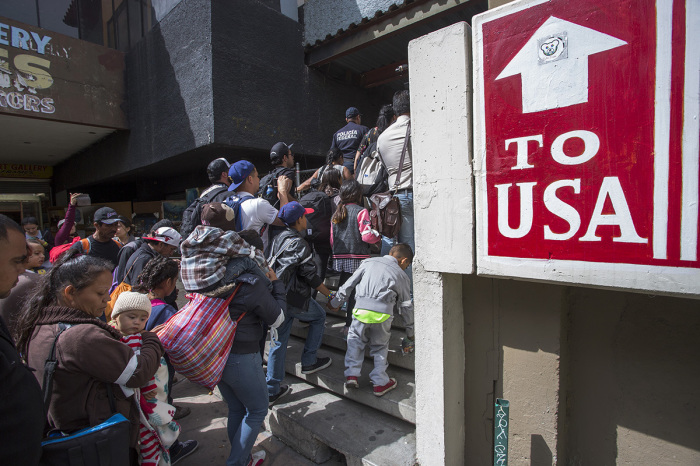
A group of progressive organizations have filed a lawsuit against President Donald Trump over his executive order to end birthright citizenship for children born to parents who are in the United States illegally.
The American Civil Liberties Union announced Monday that it and other advocacy groups have filed a complaint against the executive order in the U.S. District Court for the District of New Hampshire.
In addition to the ACLU and a few state chapters of the progressive legal group, other organizations involved in the litigation include the Asian Law Caucus, the State Democracy Defenders Fund, and the Legal Defense Fund. The groups are acting on behalf of the organizations New Hampshire Indonesian Community Support, League of United Latin American Citizens, and Make the Road New York.
“Denying citizenship to U.S.-born children is not only unconstitutional — it’s also a reckless and ruthless repudiation of American values,” said ACLU Executive Director Anthony D. Romero, as quoted in the announcement. “Birthright citizenship is part of what makes the United States the strong and dynamic nation that it is.”
“We will not let this attack on newborns and future generations of Americans go unchallenged. The Trump administration's overreach is so egregious that we are confident we will ultimately prevail.”
Shortly after being sworn-in as president, Trump issued a series of executive orders, including one that sought to remove the provision granting automatic citizenship to those born in the U.S. to illegal immigrants. The order will go into effect 30 days after it was signed.
Trump’s executive order states that while the 14th Amendment says, “All persons born or naturalized in the United States, and subject to the jurisdiction thereof, are citizens of the United States and of the State wherein they reside,” it was never meant “to extend citizenship universally to everyone born within the United States.”
“The Fourteenth Amendment has always excluded from birthright citizenship persons who were born in the United States but not ‘subject to the jurisdiction thereof,’” reasoned the order.
Further exemptions, according to the order, included “when that person’s mother was unlawfully present in the United States and the father was not a United States citizen or lawful permanent resident at the time of said person’s birth” and “when that person’s mother’s presence in the United States at the time of said person’s birth was lawful but temporary.”
As such, the order prohibits the government from issuing “documents recognizing United States citizenship” for newborns whose “mother was unlawfully present in the United States and the person’s father was not a United States citizen or lawful permanent resident at the time of said person’s birth, or (2) when that person’s mother’s presence in the United States was lawful but temporary, and the person’s father was not a United States citizen or lawful permanent resident at the time of said person’s birth.”
World Relief, a Christian humanitarian organization that receives federal funding to assist with immigrant and refugee resettlement in the U.S., took issue with Trump's executive order, arguing that the measure was unconstitutional and “shortsighted.”
“There is a process to amend the U.S. Constitution, of course, but this is not it,” stated Matthew Soerens, vice president of advocacy and policy at World Relief. “In any case, such a change would be shortsighted. Birthright citizenship has served the United States well.”
“Our government estimates that about 11 million immigrants are currently residing in the United States unlawfully; had their children also been born without legal status, we’d have far more individuals residing unlawfully in our country, denied both the rights and responsibilities of citizenship and prohibited from fully contributing to what — thanks to the 14th amendment — is their country as much as it is any other American’s.”
In 1898, the U.S. Supreme Court ruled 6-2 in the case of United States v. Wong Kim Ark that an individual born in California was indeed a citizen of the United States, even though his parents were Chinese nationals.